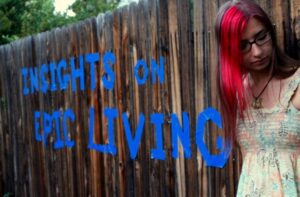
Editorial Note: The following is reprinted with permission from Eleanor Skelton’s blog. It was originally published on March 16, 2015 as part of a series.
Continued from Self-care during activism
Here are Cynthia’s concluding thoughts.
Rescuing people from cults is not an item to check off of a to-do list. It’s a process.
While we worked together on the UnBoxing Project, we learned this through our own exhausted time and money.
We didn’t just need to free people from church attendance and their abusive, controlling homes. In little funny moments and frustrating conflicts, we watched them free their own minds and personalities.
Moments like when Racquel wore jeans for the first time. We’d told her that she had a lovely figure that didn’t need to be concealed under long, wide skirts, and she didn’t believe us until then.
Moments like when Eleanor first moved out, I recommended dry beans for cost-effective meals, and she didn’t know how to cook them.
Moments like the Socratic dialogue with Ash in a reclusive university meeting room, establishing that safety was possible.
After my friends and I got out, we struggled with various levels of c-PTSD, depression, and anxiety from the emotional, physical, and spiritual abuse we’d endured. It would be difficult enough to hold a job while dealing with shock and recovery, but many of the people we helped didn’t have any experience in the workforce.
I believed in self-sacrifice, and I didn’t care if I wasn’t well enough to help other people. Nobody else was going to do it if we didn’t. I told Cynthia Barram this, and she gave me a graphic image: She said to picture a woman in a place where food was scarce. The baby still sucked at his mother’s breast, but she had no nutrition left to give. At this point, the child was just eating blood.
We needed stability and resources ourselves, but with our parents gone, we only had each other. Like the undernourished mother nursing, we gave more than we had to give.
Many of us had to drop classes because taking care of extra people was so stressful. Eleanor ended up paying more than her portion of rent for the house she got with some of the people we’d rescued.
We realized that we weren’t heroes, and we didn’t have the strength to be heroes.
The question was, at what point do you let people learn for themselves?
Our own limitations answered for us: we didn’t have the means to support other adults who had so little experience with the outside world.
We all decided that if we needed to rescue people, we wouldn’t be able to share finances with them, like co-signing on a lease. Getting out of a cult left these adults without survival skills, and we were young and broke, too. For the first year after my parents kicked us out, my sister and I rented from a family whose children were grown.
If only we knew some people who were older than us, who had the financial stability to own a house and rent out a room. If only we knew people who could teach a young adult, between the ages of 18 and 25 or so, how to keep a job and pay the rent.
Unfortunately, most of the people in the networks we had were similar to our own parents. That’s what isolation does — it limits the people you know.
We’re still looking for people who can serve as safe houses in our UnBoxing Project, perhaps who have more stable living conditions than those of us who needed to escape, too.
We need them. People who are willing to take a young adult into a guest bedroom, and help them prepare for life outside. Help them find and keep a job.
Those of us who were abused aren’t very demanding. We generally don’t take up much space, and we shrink at the thought of imposing on anyone. Just let us know we’re welcome, and let us know that it’s okay to talk about what’s going on. We need therapy to deal with what we’ve lived through.
Can we ask you to do that? Because we can’t do it ourselves.

********
Shop at our Amazon store! As an Amazon Influencer, this website earns from qualifying purchases.
